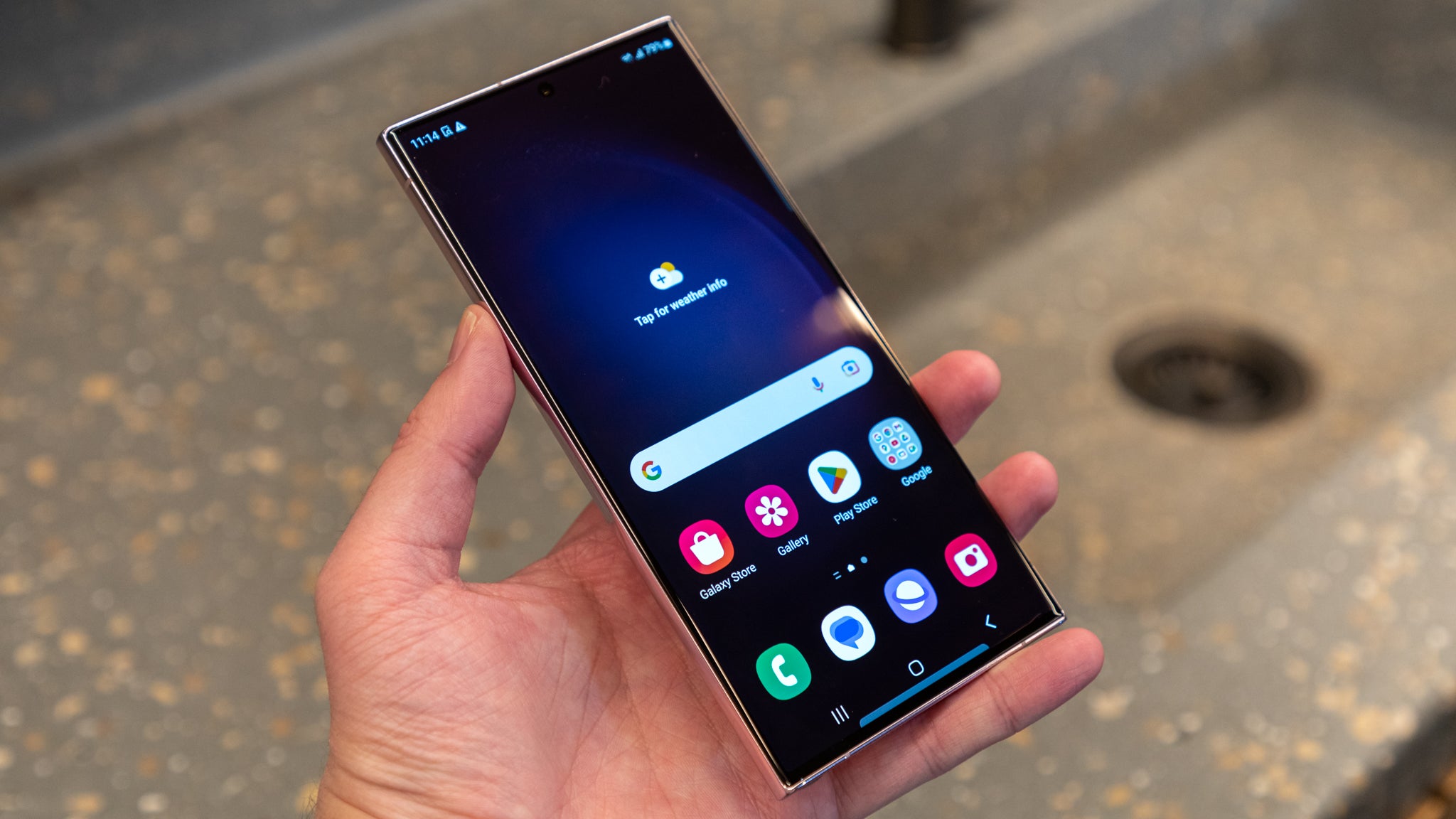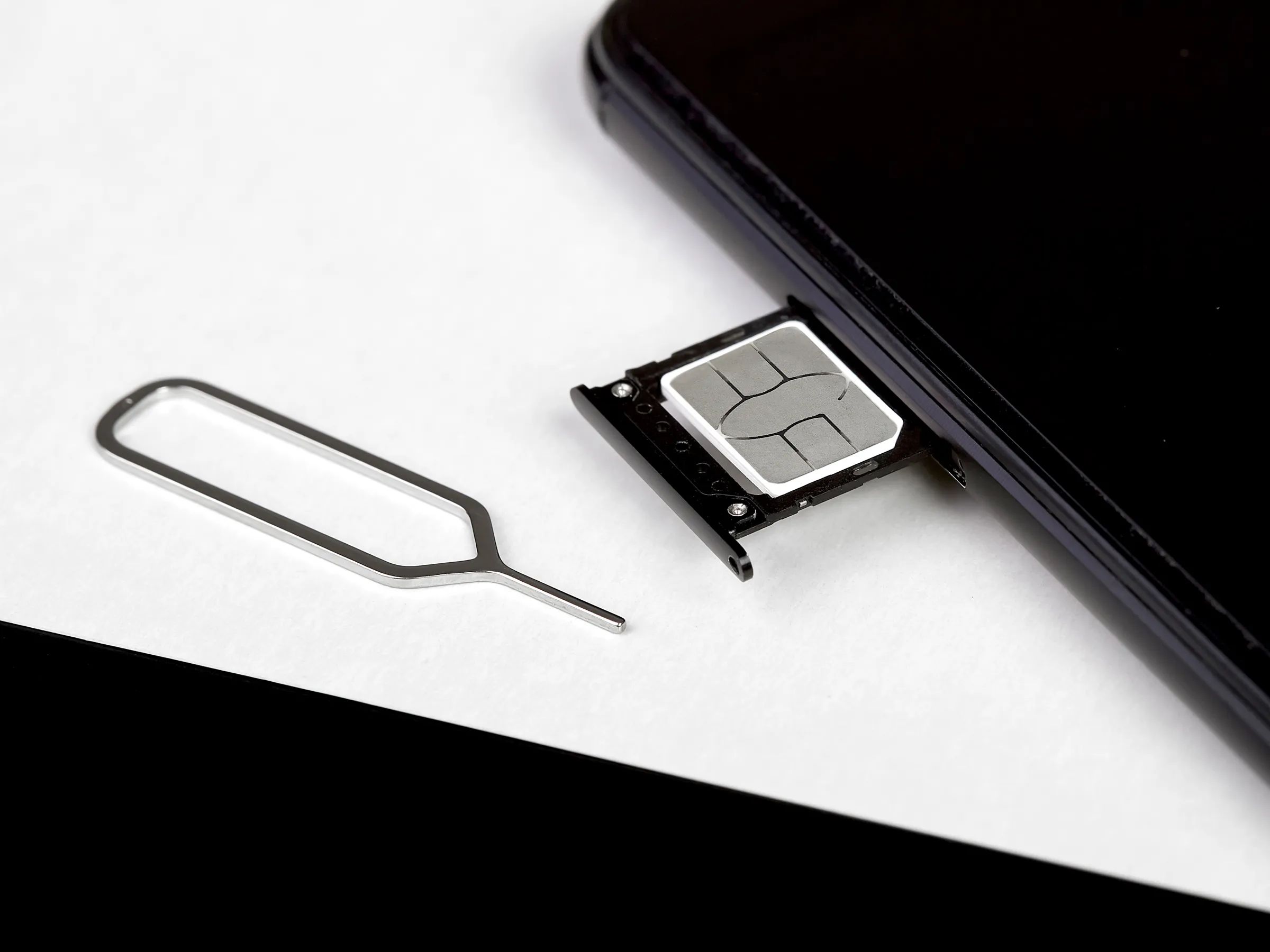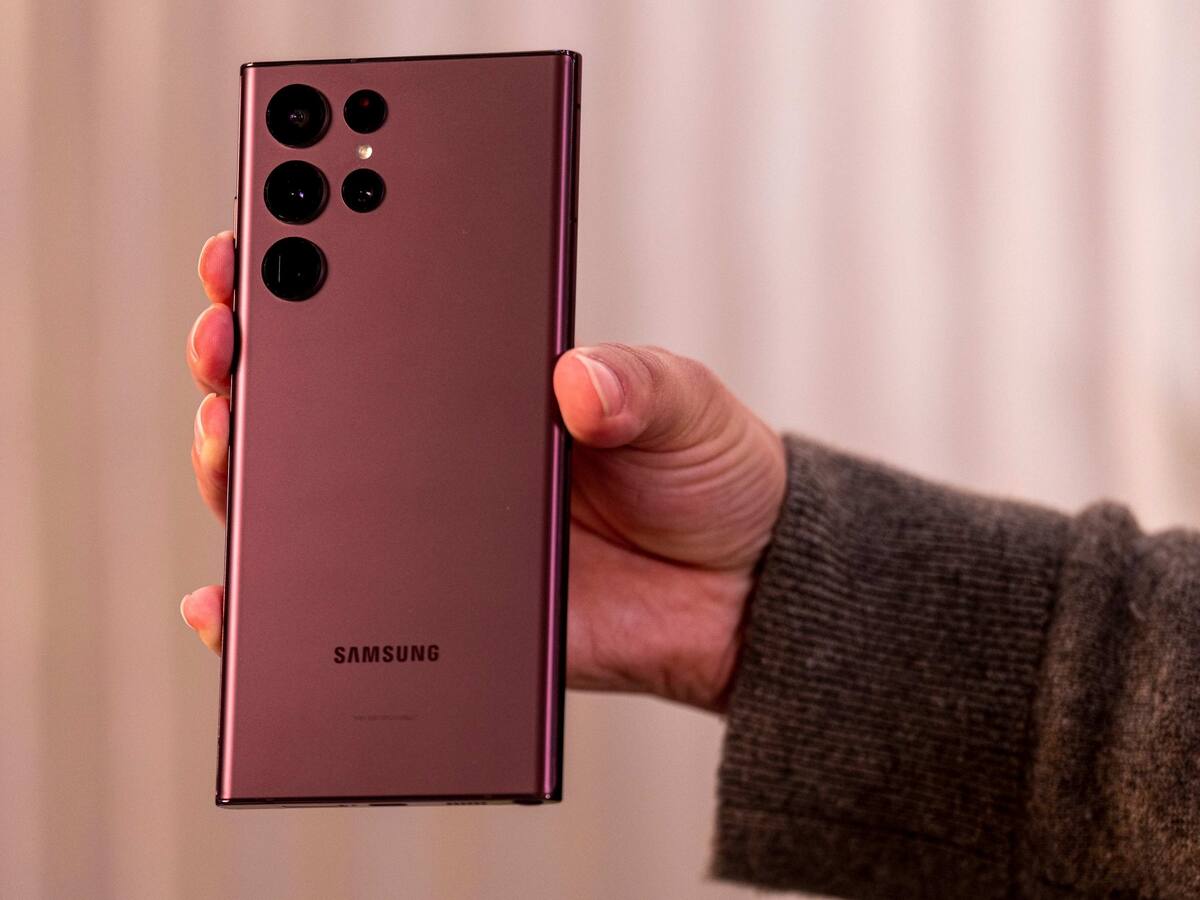Introduction
In today's digital age, the use of mobile devices has become an integral part of our daily lives. These devices have evolved from mere communication tools to multifunctional gadgets that store a wealth of personal information. However, the reliance on SIM cards for phone tracking has led to a common misconception that a SIM card is a prerequisite for tracking a phone. In this article, we will delve into the intricacies of phone tracking without a SIM card, exploring the various methods and technologies that enable this feat.
By understanding the underlying principles of phone tracking and the role of SIM cards, we can uncover the possibilities and limitations of tracking a phone without this ubiquitous component. This exploration will shed light on the innovative technologies that have revolutionized the way we locate and monitor mobile devices, offering insights into the potential applications and implications of such capabilities.
As we embark on this journey, it's important to recognize the significance of phone tracking in various contexts, including personal security, asset management, and law enforcement. The ability to track a phone without a SIM card opens up a realm of possibilities, presenting both opportunities and challenges in the realm of mobile device tracking.
With this in mind, let's venture into the realm of phone tracking without a SIM card, unraveling the mysteries and unveiling the technologies that make it possible. Through this exploration, we aim to equip readers with a comprehensive understanding of the methods, technologies, and considerations involved in tracking a phone without a SIM card.
Understanding SIM Cards and Phone Tracking
SIM cards, or Subscriber Identity Module cards, play a pivotal role in mobile communication. These small, removable cards securely store the subscriber's identity and authentication information, allowing them to connect to a mobile network and make calls, send messages, and access data services. In the context of phone tracking, SIM cards have traditionally been associated with identifying and locating mobile devices. However, it is important to understand that the presence of a SIM card is not the sole determinant of a phone's trackability.
When a mobile device is powered on and connected to a network, the SIM card facilitates the transmission of signals between the device and the network infrastructure. This interaction enables the mobile network to identify the device's location and establish communication channels. In conventional scenarios, the SIM card's unique identifier, known as the International Mobile Subscriber Identity (IMSI), is used to associate the device with the subscriber's account and enable network connectivity.
In the realm of phone tracking, the reliance on SIM cards has been gradually supplemented by alternative technologies and methodologies. While SIM cards have historically served as a primary means of identifying and tracking mobile devices, advancements in GPS, Wi-Fi, and Bluetooth technologies have expanded the horizons of phone tracking beyond the constraints of SIM card dependency.
It is essential to recognize that the absence of a SIM card does not render a mobile device untraceable. In fact, the proliferation of smartphones and IoT (Internet of Things) devices has spurred the development of diverse tracking mechanisms that operate independently of SIM cards. These mechanisms leverage built-in hardware, such as GPS receivers, Wi-Fi transceivers, and Bluetooth modules, to enable precise and versatile phone tracking capabilities.
By understanding the evolving landscape of phone tracking technologies and the intrinsic functions of SIM cards, we can appreciate the dynamic interplay between traditional and contemporary tracking methodologies. This understanding sets the stage for exploring the diverse methods and technologies that enable phone tracking without a SIM card, offering valuable insights into the multifaceted nature of modern phone tracking capabilities.
Methods for Tracking a Phone Without a SIM Card
In the absence of a SIM card, several innovative methods and technologies enable the tracking of mobile devices, offering diverse approaches to locate and monitor phones without traditional SIM-based identification. These methods harness the inherent capabilities of modern smartphones and leverage alternative communication and positioning technologies to achieve precise and reliable phone tracking.
GPS Tracking
Global Positioning System (GPS) technology has revolutionized location-based services and phone tracking. Smartphones are equipped with GPS receivers that can accurately determine the device's geographical coordinates, enabling real-time tracking and location-based applications. Even without a SIM card, a smartphone's GPS functionality remains operational, allowing it to transmit its location data to tracking systems and applications. This method is particularly valuable for outdoor tracking, as it provides precise location information based on satellite signals.
Wi-Fi Tracking
Wi-Fi technology offers an alternative means of tracking phones without relying on SIM cards. Wi-Fi signals emitted by smartphones can be utilized to establish their presence within a Wi-Fi network's coverage area. By analyzing the signal strength and unique identifiers of nearby Wi-Fi access points, it is possible to triangulate the phone's position and track its movements. This method is especially effective in urban and indoor environments where Wi-Fi networks are prevalent, enabling accurate phone tracking without SIM card dependency.
Bluetooth Tracking
Bluetooth technology presents another avenue for tracking phones in the absence of a SIM card. Bluetooth-enabled smartphones emit discoverable signals that can be detected and utilized for proximity-based tracking. By deploying Bluetooth beacons or sensors in strategic locations, it becomes feasible to monitor and track the movement of Bluetooth-enabled devices, including smartphones, within the vicinity. This method is conducive to indoor tracking scenarios and offers a viable solution for locating phones without SIM cards in confined spaces.
These methods exemplify the versatility and resilience of phone tracking technologies, showcasing the adaptability of modern smartphones and their inherent tracking capabilities. By harnessing GPS, Wi-Fi, and Bluetooth technologies, it is possible to track phones without the conventional reliance on SIM cards, opening up new possibilities for location-based services and mobile device management.
The evolving landscape of phone tracking reflects the dynamic interplay between traditional and emerging tracking methodologies, underscoring the diverse avenues through which phones can be tracked without SIM card constraints. As technology continues to advance, the realm of phone tracking without SIM cards is poised for further innovation and refinement, offering enhanced precision and reliability in the tracking of mobile devices.
GPS Tracking
Global Positioning System (GPS) technology has redefined the landscape of phone tracking, offering a robust and versatile method for locating mobile devices without the reliance on SIM cards. At the core of GPS tracking lies a network of orbiting satellites that continuously transmit precise timing and positioning information. Smartphones equipped with GPS receivers can intercept these signals and calculate their own geographical coordinates, enabling accurate real-time tracking and location-based services.
One of the key advantages of GPS tracking is its independence from cellular networks, making it particularly valuable in remote or outdoor environments where traditional SIM-based tracking may be limited. Even without a SIM card, a smartphone's GPS functionality remains operational, allowing it to transmit its location data to tracking systems and applications. This capability has significant implications for personal safety, asset management, and location-based services, as it enables the precise tracking of mobile devices in diverse scenarios.
In the context of phone tracking without a SIM card, GPS technology offers unparalleled accuracy and reliability. By leveraging satellite signals, smartphones can determine their exact coordinates with remarkable precision, facilitating seamless integration with tracking platforms and location-aware applications. This method is instrumental in outdoor tracking scenarios, where GPS signals provide comprehensive coverage and enable precise positioning even in remote or challenging terrain.
Furthermore, the ubiquity of GPS technology in modern smartphones has expanded the horizons of phone tracking, empowering individuals and organizations to monitor and manage mobile devices with unprecedented precision. Whether it's tracking a lost phone, monitoring the movements of field personnel, or optimizing logistics operations, GPS tracking without a SIM card offers a resilient and dependable solution for location-based tracking and management.
As smartphones continue to evolve and integrate advanced positioning technologies, the potential for GPS tracking without SIM card dependency is poised for further enhancement. The seamless fusion of GPS functionality with innovative tracking applications and services underscores the enduring relevance and versatility of GPS technology in the realm of phone tracking. This convergence paves the way for enhanced location-based experiences and reinforces the intrinsic value of GPS tracking in the absence of SIM card constraints.
In essence, GPS tracking represents a cornerstone of modern phone tracking capabilities, transcending the limitations of SIM card dependency and ushering in a new era of precise and reliable location-based services. With its inherent resilience and accuracy, GPS tracking without a SIM card embodies the convergence of technological innovation and practical utility, offering a compelling solution for tracking mobile devices in diverse environments and scenarios.
Wi-Fi Tracking
Wi-Fi tracking harnesses the pervasive nature of Wi-Fi networks to facilitate the location and tracking of mobile devices, even in the absence of a SIM card. Smartphones emit Wi-Fi signals that can be utilized to establish their presence within the coverage area of Wi-Fi networks. This method leverages the unique identifiers and signal strength of nearby Wi-Fi access points to triangulate the phone's position and monitor its movements.
One of the key advantages of Wi-Fi tracking is its applicability in urban and indoor environments, where Wi-Fi networks are prevalent. Unlike traditional GPS tracking, which may encounter limitations in indoor settings, Wi-Fi tracking thrives in these environments, offering a robust solution for tracking phones without SIM card dependency. The density of Wi-Fi access points in urban areas and indoor spaces enables precise positioning and tracking, making it an invaluable tool for location-based services and asset management.
Furthermore, Wi-Fi tracking complements GPS-based tracking by providing seamless indoor and urban coverage, bridging the gap between outdoor and indoor tracking scenarios. This convergence of tracking methodologies enhances the overall reliability and continuity of phone tracking, ensuring comprehensive coverage across diverse environments.
In addition to its tracking capabilities, Wi-Fi tracking contributes to the optimization of location-aware services and contextual experiences. By leveraging Wi-Fi signals for tracking purposes, smartphones can seamlessly integrate with location-based applications, providing users with tailored and relevant information based on their proximity to Wi-Fi access points. This integration extends beyond traditional tracking, enriching the user experience and enabling personalized interactions based on spatial context.
The evolution of Wi-Fi tracking technologies has further expanded its utility, paving the way for enhanced precision and scalability in phone tracking without SIM cards. As smartphones continue to integrate advanced Wi-Fi positioning capabilities, the potential for seamless and reliable tracking in diverse environments is poised for continual advancement.
In essence, Wi-Fi tracking represents a pivotal pillar of modern phone tracking methodologies, offering a resilient and effective solution for tracking mobile devices without the constraints of SIM card dependency. Its adaptability to urban and indoor environments, coupled with its seamless integration with location-based services, underscores the enduring relevance and versatility of Wi-Fi tracking in the realm of mobile device tracking.
Bluetooth Tracking
Bluetooth technology presents a compelling avenue for tracking phones in the absence of a SIM card, offering a versatile and effective method for monitoring the movements and whereabouts of Bluetooth-enabled devices. At the heart of Bluetooth tracking lies the emission of discoverable signals by smartphones, which can be detected and utilized for proximity-based tracking. By deploying Bluetooth beacons or sensors in strategic locations, it becomes feasible to monitor and track the movement of Bluetooth-enabled devices, including smartphones, within the vicinity.
One of the key advantages of Bluetooth tracking is its suitability for indoor tracking scenarios, where GPS and Wi-Fi-based methods may encounter limitations. The localized nature of Bluetooth signals enables precise tracking within confined spaces, making it an ideal solution for tracking phones without SIM cards in indoor environments such as shopping malls, airports, and office buildings. This capability is instrumental in enhancing security measures, optimizing asset management, and facilitating location-based services within indoor settings.
Furthermore, Bluetooth tracking contributes to the seamless integration of proximity-based interactions and contextual experiences. By leveraging Bluetooth signals for tracking purposes, smartphones can engage with Bluetooth-enabled devices and infrastructure, enabling personalized interactions and tailored experiences based on proximity and spatial context. This integration extends beyond traditional tracking, enriching the user experience and fostering innovative applications in areas such as retail, hospitality, and smart infrastructure.
The evolution of Bluetooth tracking technologies has expanded its utility, paving the way for enhanced precision and scalability in phone tracking without SIM cards. As smartphones continue to integrate advanced Bluetooth positioning capabilities, the potential for seamless and reliable tracking in diverse environments is poised for continual advancement. This convergence of tracking methodologies enhances the overall reliability and continuity of phone tracking, ensuring comprehensive coverage across diverse environments.
In essence, Bluetooth tracking represents a pivotal pillar of modern phone tracking methodologies, offering a resilient and effective solution for tracking mobile devices without the constraints of SIM card dependency. Its adaptability to indoor environments, coupled with its seamless integration with proximity-based interactions and contextual experiences, underscores the enduring relevance and versatility of Bluetooth tracking in the realm of mobile device tracking.
Conclusion
In conclusion, the landscape of phone tracking has transcended the traditional constraints of SIM card dependency, ushering in a new era of versatile and resilient tracking methodologies. The exploration of GPS, Wi-Fi, and Bluetooth tracking without SIM card reliance has unveiled a dynamic interplay of technologies that offer precise and reliable solutions for locating and monitoring mobile devices in diverse environments.
The evolution of GPS technology has redefined the realm of phone tracking, empowering smartphones to transmit their geographical coordinates with unparalleled accuracy and resilience. The independence of GPS tracking from cellular networks has broadened its applicability, enabling seamless outdoor tracking and enhancing location-based services across various domains. The ubiquity of GPS functionality in modern smartphones underscores its enduring relevance and potential for further refinement, solidifying its position as a cornerstone of phone tracking without SIM card constraints.
Similarly, Wi-Fi tracking has emerged as a robust and adaptable method for tracking phones without SIM cards, leveraging the pervasive nature of Wi-Fi networks to enable precise positioning and tracking in urban and indoor environments. The seamless integration of Wi-Fi tracking with location-based services enriches the user experience and expands the horizons of contextual interactions, underscoring its significance in the evolving landscape of phone tracking methodologies.
Furthermore, Bluetooth tracking has demonstrated its efficacy in indoor environments, offering a tailored solution for proximity-based tracking and contextual experiences. The localized nature of Bluetooth signals enhances its suitability for indoor tracking scenarios, fostering innovative applications in areas such as retail, hospitality, and smart infrastructure. The convergence of Bluetooth tracking with proximity-based interactions exemplifies its potential for enhancing user experiences and facilitating seamless tracking without the reliance on SIM cards.
As technology continues to advance, the convergence of GPS, Wi-Fi, and Bluetooth tracking methodologies is poised to elevate the precision, reliability, and scalability of phone tracking without SIM card dependency. This convergence reflects the resilience and adaptability of modern smartphones, offering a glimpse into the future of location-based services and mobile device management.
In essence, the ability to track a phone without a SIM card signifies a paradigm shift in the realm of mobile device tracking, transcending traditional constraints and opening up new possibilities for location-based services, asset management, and personalized interactions. The coalescence of GPS, Wi-Fi, and Bluetooth tracking methodologies embodies the evolution of phone tracking, heralding a future where the reliance on SIM cards is no longer a prerequisite for precise and reliable tracking of mobile devices.






















